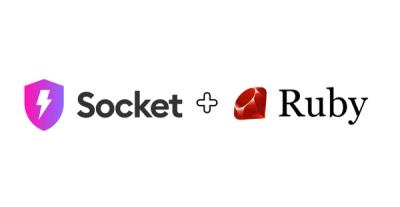


resourcepacker
resourcepacker (or rpkr for short) is a useful tool for packaging Minecraft resource packs from a messy working directory into a clean output folder.
Usage
Install resourcepacker on npm by typing npm install -g resourcepacker in the command prompt. You must have Node.js installed.
After installing resourcepacker, cd to the directory your resource is located in, then type rpkr init to ready your directory with a configuration file (.rpkr.json). Customise the values in this configuration file to your liking. For information on how to use this configuration file, please see the Configuration section below.
To package a resource pack, simply type rpkr pack and your resource pack will be packaged into an output folder. You can control which directory the files are outputted to by placing the output folder name in quotes after this command; for example, rpkr pack "My Pack 1.16" outputs to folder "My Pack 1.16". If the output folder is not set in the command line, it defaults to the format "<name> <packver> (<mcver>)", where each value comes from the .rpkr.json file.
Configuration
The .rpkr.json configuration file can be edited to fine tune the output of your resource pack. Available parameters can be found below, with further explanations found in sub-sections.
Parameters
configver: The .rpkr.json file version. Leave as-is.name: The name of your resource pack. Defaults to the name of the current folder.packver: The version of your resource pack. Defaults to "1.0.0".mcver: The Minecraft version your resource pack is made for. Defaults to "1.16.x".mcsnap (optional): The Minecraft development version your resource pack is made for. Blank by default.description (optional): The content in the description field of the automatic pack.mcmeta file. Only generates an automatic pack.mcmeta when set. More information below.languages (optional): A list of languages to add to the automatically-generated pack.mcmeta file.files: File globs that will be passed through into your output folder. More information below.
Description
The description parameter, when set, will be the contents of the description key of an automatically-generated pack.mcmeta file. An automatic pack.mcmeta file is only created when this parameter is set. Other parameters in .rpkr.json can be referenced by placing the parameter name in angle brackets (<>). Color codes can be declared using either ampersands (&) or section signs (§) followed by a hexidecimal digit. The value of the pack_version key in pack.mcmeta is determined by the value of mcver.
For example, a description of &b<name> &l<packver> sets the description key of pack.mcmeta to the value of the name parameter in aqua followed by the contents of the packver parameter in bold.
Languages
The languages parameter is an object where each key is the language code your pack is adding or modifying (which much match a language file inside assets/minecraft/lang) with the value being the name of the language in the format "language (variant)". For example, if your resource pack modifies British English, use "en_gb": "English (United Kingdom)". Multiple custom languages can be added.
Files
You can add or remove any globs (file path formats) as you see fit to the .rpkr.json configuration file under the "files" array; for example, if you have a readme.txt file in the root directory that you want outputted, add readme.txt to the array. Use "**" to specify any number of nested subfolders (including zero) and "*" to specify any string of characters (excluding slashes). By default, the following globs are specified in the files array:
pack.png
pack.mcmeta
assets/**/*.png
assets/**/*.mcmeta
assets/**/*.json
assets/**/*.lang
assets/**/*.txt
assets/**/*.fsh
assets/**/*.bin
Try it out
Clone this repository then type cd resourcepacker && npm install && node index.js pack to pack the contents of this repository into a clean output folder. You'll see that out of all of the messy files in this folder, only the assets, pack.png, and pack.mcmeta files are outputted.






